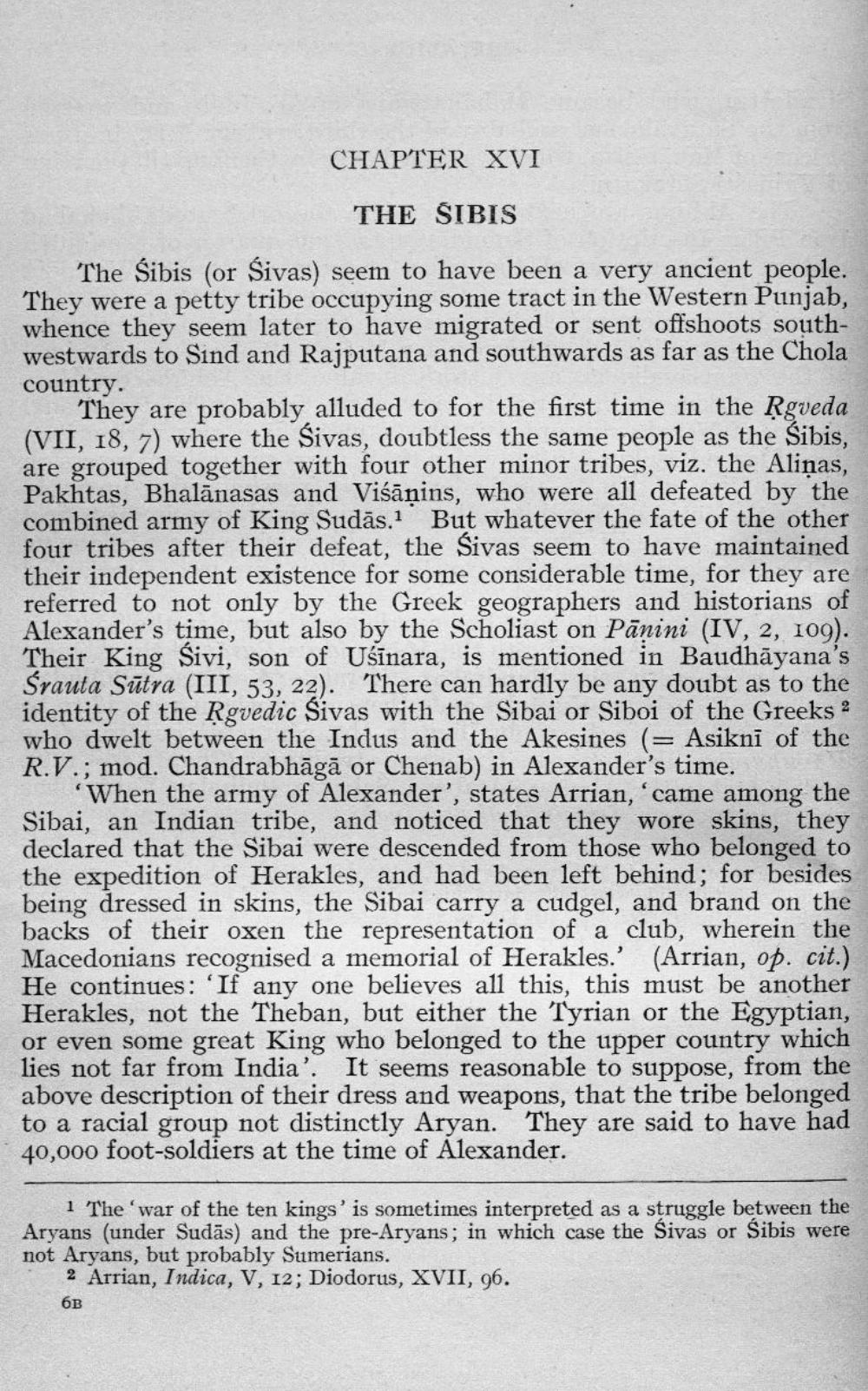________________
CHAPTER XVI
THE SIBIS
The Sibis (or Sivas) seem to have been a very ancient people. They were a petty tribe occupying some tract in the Western Punjab, whence they seem later to have migrated or sent offshoots southwestwards to Sind and Rajputana and southwards as far as the Chola country.
They are probably alluded to for the first time in the Rgveda (VII, 18, 7) where the Sivas, doubtless the same people as the Sibis, are grouped together with four other minor tribes, viz. the Aliņas, Pakhtas, Bhalānasas and Visāņins, who were all defeated by the combined army of King Sudās. 1 But whatever the fate of the other four tribes after their defeat, the Sivas seem to have maintained their independent existence for some considerable time, for they are referred to not only by the Greek geographers and historians of Alexander's time, but also by the Scholiast on Pānini (IV, 2, 109). Their King Sivi, son of Uśīnara, is mentioned in Baudhāyana's Srauta Sūtra (III, 53, 22). There can hardly be any doubt as to the identity of the Rgvedic Sivas with the Sibai or Siboi of the Greeks 2 who dwelt between the Indus and the Akesines (= Asikns of the R.V.; mod. Chandrabhāgā or Chenab) in Alexander's time.
'When the army of Alexander', states Arrian, 'came among the Sibai, an Indian tribe, and noticed that they wore skins, they declared that the Sibai were descended from those who belonged to the expedition of Herakles, and had been left behind; for besides being dressed in skins, the Sibai carry a cudgel, and brand on the backs of their oxen the representation of a club, wherein the Macedonians recognised a memorial of Herakles.' (Arrian, op. cit.) He continues: 'If any one believes all this, this must be another Herakles, not the Theban, but either the Tyrian or the Egyptian, or even some great King who belonged to the upper country which lies not far from India'. It seems reasonable to suppose, from the above description of their dress and weapons, that the tribe belonged to a racial group not distinctly Aryan. They are said to have had 40,000 foot-soldiers at the time of Alexander
1 The 'war of the ten kings' is sometimes interpreted as a struggle between the Aryans (under Sudās) and the pre-Aryans; in which case the Sivas or Sibis were not Aryans, but probably Sumerians.
2 Arrian, Indica, V, 12; Diodorus, XVII, 96.
бв




